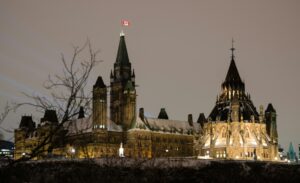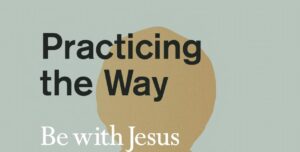“Even though I walk through the darkest valley,” or as most of us memorized it, “the valley of the shadow of death.”
We were only two weeks into our time in Zambia when I attended my first funeral, that of a young child of a young family who would become our friends. This was our introduction to them. I would attend more funerals in my first year there than I had in my previous 30 here. It was the early 90’s, the front end of the AIDS pandemic, which only complicated the already dire reality of malaria, cholera, TB, dysentery and meningitis.
Death
The average life expectancy when we arrived was 53 years, par for the course for sub-Saharan Africa. By 2007 it had dropped to 37, which reduced average life almost one year per year. Some of our pastors in the city were holding 7 funerals a week.
At the cemeteries the vehicles carrying mourners were literally lined up down the street, in queues waiting their turn to bury their loved ones. It seemed to me as I would drive past those wailing lines, a very tangible valley of the shadow of death.
Benjamin Franklin is credited with the saying, “In this world nothing can be said to be certain, except death and taxes.”I would suggest that death and its shadow and dark valleys are the more certain of the two.
Death is the wage of sin, the consequence of our disobedience. As surely as we all are sinners, we all will surely die. And Jesus stated matter of factly, “In this world you will have trouble/tribulation.” And some of our troubles, trials and sorrows seem as dark as death.
There are indeed other crises in life than just the final one. So whether a dark valley, a valley dark as death, a valley with death’s shadow, or death itself, all are real and all are to be expected. The Psalmist says “even though, not if.” As another writer puts it “Some evils may come; some will probably come; one at least is sure to come.”
Fear
Fear and evil are also a reality, holding great power. The enemy of our soul, the evil one, prowls about like a lion seeking someone to devour. He comes only to steal, kill and destroy. He is the deceiver and the father of lies. Whatever our heavenly Father offers us as good gifts, the evil one seeks to pervert and ultimately snatch away.
Outside of Christ and his power, we are held captive to sin and subject to the schemes of the devil. Satan’s power is limited though, and his schemes are consistent, so we can know him and learn to stand against him. I would suggest fear is one of, if not his greatest weapon.
What are you most afraid of? Fear of spiders and snakes top the list of the 100 greatest phobias, with fear of the dark, heights, crowded spaces, flying and even chickens making the top 20. Death apparently ranks number 12, just ahead of public speaking.
Evil
Evil, per se, doesn’t make the list, although many things on the list could be considered evil. We all have fears of one sort or another and they all sit in comparative rank for us personally. Some fears are good and keep us safe and others can be irrational and keep us paralyzed, restricting our movement and ability to enjoy all that God has created for us. Some fears keep us in slavery to the evil one.
It is quite a claim then, that the psalmist makes, that in the midst of darkness, with death on the doorstep, he fears absolutely no evil. Trouble has visited, the way has gotten rough, night has fallen, deadly foes hide waiting to pounce, and the psalmist knows only peace of mind and comfort of soul. Can you make such a claim? Can I? Well good news – he tells us his secret?
It is the Shepherd’s promise of his presence: “As I walk through this dark valley, You are with me.” Notice that the pronouns turn here. They move from “he” to “you.” There is a personal nature to the relationship – the Lord is my Shepherd.
And here we see this intimacy born out as the path and the pasture turn from lush and green, with quiet streams babbling, to hard and dark. Yet even as evil draws near, the Shepherd draws nearer. He moves from being ahead to lead, or behind to drive, to coming alongside to escort. A companion to walk beside.
One of my epiphany moments, walking hand in hand with my dear friend Manueli down a sandy road in Africa and his looking down at me and expressing this heartfelt sentiment, “thank you for coming and suffering with us.” A companion to walk beside through life’s hard challenges. The power of presence.
Right path and the dark valley
There is no indication that this dark valley is not also the right path spoken of in the previous verse. Whether a place of rest and refreshment or a rocky river bed, the Shepherd leads and has his purposes for the way he has chosen for us to walk.
And also note that he doesn’t simply keep us from the dark place, but rather walks with us through it. It is not the rescue from death’s shadow for which the psalmist prays, but rather the presence of the good shepherd from which he takes comfort.
So many of us long for mountain top experiences, with lush, green, abundant food all around us all the time, and quite frankly the reality of the dark valley disillusions us. Like the disciples on the boat in the midst of the storm, we wake the Saviour and cry out “Master, don’t you care?”
Our faith has wavered and fear has taken hold, it grips us in doubt and panic sets in. We so easily lose perspective, and the things that matter most for eternity seem to pale in comparison to our present, with its very real and hard, yet temporary trial and pain. Jesus promised to never leave us nor forsake us. His presence with us is assured. Is it enough?
Comfort
The psalmist not only speaks of the Shepherd’s presence but also of his tools: his rod and staff. The rod is a weapon that was used to safeguard both the shepherd and his flock in the face of danger. The staff was for walking but also for guiding, for prodding the sheep to go in the right way.
Together the rod and staff were used for discipline, to correct any wayward sheep that insisted on wandering away. Protection and guidance; defending and disciplining. Discipline remember is both instruction – this is the way: walk in it – and correction – you have gone off the path: get back on it. A father or mother who loves their children, and a shepherd who cares for his sheep, offer both.
The Psalmist says these tools bring him comfort. Comfort in the sense of security I would think. When we know we are protected by one who cares for us deeply, willing to lay down his life for ours – in fact has laid down his life for ours so that we are secure for all eternity – a calm confidence results.
We can face whatever temporary struggles come our way, whatever opposition, whatever suffering, knowing we are safe in the hands of the one who is all powerful, able to save.
When we know we are guided by one who loves us enough to set firm boundaries for our good, who leads us into truth on right paths, who gently yet firmly redirects us when we err and stumble, who is light bringing clarity to the dark path, a calm confidence results.
The Good Shepherd’s “Yes”
Every one of us, especially in the face of darkness is asking the question, “Am I safe here?” Our good Shepherd answers an unequivocal“yes.”
On his own death bed, experiencing the reality of the valley of the shadow of death, John Newton said, “I am still in the land of the dying, I shall be in the land of the living soon.” We so often hold on to this life as if it was all we had, believing we are in the land of the living moving toward death.
In fact this is just a taste of what God has planned and prepared for us. In that sense all of this life is a walk through the valley of the shadow of death. And death is the doorway that opens out into an eternity of delight with God.
When we understand by faith the greater reality of life eternal in the presence of our creator, our great Shepherd, who died that we might live, death and its valleys that hold its shadow are not something to fear, but an opportunity to experience the presence and protection of our Lord God, the good Shepherd.
And of course when it does come to death itself, it is only the Lord who can lead us through. All other companions have to turn back.



















